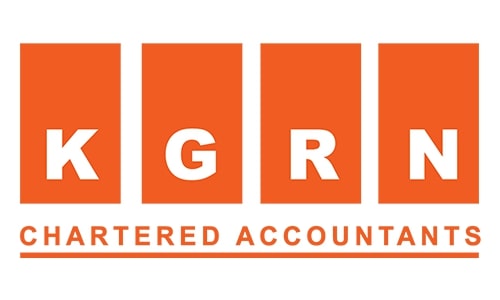Accounting Challenges Faced by IT and Software Sectors
There was a time when the bulk of the work of accountants consisted of bookkeeping, data entry, and number crunching. Today, the modern accountant is faced with client demands that require one to do much more than these traditional services. Much of the evolution in the accountant’s role and in the industry, in general, is aided by technology like accounting software, which eases the burden of workload so that one can focus on strategic, value-adding tasks. KGRN is one of the best Accounting firms in Dubai.
From automation and AI to data security, there are a lot of accounting software trends for 2022 that professionals in the industry need to keep track of to stay competitive in their field. Being aware of these trends will not only add to their professional competence but also inspire them to innovate for the betterment of their firm and the welfare of their clients.
1. Decline in Accounting Software Spend
The pandemic has driven client expectations beyond traditional services to include a diverse service menu. Nowadays, they don’t just seek core accounting or bookkeeping advice. They also seek guidance on how to comply with emergency legislation, leverage government assistance, and compute leave entitlements and wage subsidies.
In September 2020, 62% of technology buyers said they expected to spend the same for finance and accounting tools. Meanwhile, 18% said they will spend more while 15% said they will spend less. More recent accounting software trends show that 21% of businesses are expected to reduce software spending on finance and accounting software in 2021. This made finance and accounting one of the top 10 areas where technology buyers planned to decrease spending during that fiscal year.
2. Accounting Software Integrated with ERP
For businesses to use accounting software is not a novel phenomenon. In fact, in 2020, the accounting software trends show that the market was already valued at $12.01 billion. It is further projected to reach $19.59 billion by 2026 (Research and Markets, 2021). Using an ERP allows organizations to combine their accounting data and financial data with other critical areas of their business, such as supply chain, order, and production management. Companies can reap numerous benefits by having all accounting and other important information under one umbrella which is your ERP.
3. AI for Accounting
Accountants and CIOs agree that artificial intelligence software is one of the emerging technologies that will shape the future of the industry. In a survey, 20% of accountants say that they are currently investing in and adopting AI technology. Another 20% said that they plan to adopt AI technology within the next 12 months (Sage, 2020). On the other hand, 47% of CIOs believe that the COVID-19 pandemic has led to the acceleration of digital transformation and adoption of emerging technology, such as artificial intelligence, machine learning, blockchain, and automation.
The pandemic has even served to hasten AI adoption. Data shows an 11% increase in usage of AI and machine learning technologies between the pre-COVID phase of 2020 and the onset of the pandemic in the same year (Harvey Nash/KPMG, 2020).
4. More Emphasis on Data Security
Accountants often handle sensitive client information related to their finances, payroll, and taxes. As such, the occurrence of data breaches is a huge blow to their credibility and reputation and even opens them up to lawsuits. The prevalence of these events has led software consumers to be even more mindful of security issues. The challenge for today’s accountants and accounting firms is to be effective data collectors and handlers. To do this, they should observe security best practices, such as proper access and protocols, physical security protocols, and backup and encryption.
5. Utilizing Accounting Data for Insights
Investing in a robust data infrastructure opens up the possibilities for companies to implement advanced technologies. One of these is data visualization and analytics, which is crucial for sound decision-making. The use of advanced technologies has altered the kind of services that accountants do for clients, too.
6. Accountants as Partners of Businesses
Crunching numbers is traditionally the main function of accountants. However, as client needs to be changed over the course of the pandemic, there came the realization that accountants can do so much more. The pandemic even saw the growth of accountants as trusted advisors. In a survey, 48% of small businesses in the US say that they found the advice they have been getting from an accountant about COVID-related government relief programs as important (Onpay, 2020)
7. Accounting Automation as the New Standard
Many finance-related activities can be automated. A study shows that 77% of general accounting operations can be fully automated while 12% can be highly automated and 12% can be somewhat automated. These activities include complex journal entries, account reconciliations, fixed-asset account maintenance, and calculating and applying allocations. Experts observed that firms with a high number of transactions and are mostly client-facing like banks and utility companies tend to automate their processes
However, organizations aspiring to have fully automated processes still have a long way to go to complete the journey. Data shows that 42.9% of finance professionals say that their processes are still considerably manual while only 22.4% said it is largely automated. This is because organizations are currently opting to implement foundational tools like cloud-based accounting solutions rather than automation tools.
8. Demand for Transparent Reporting
Financial reporting is the most common way for the public and investors to know how well a company is performing. Having high-quality financial statements that promote transparency grows investor confidence and allows them to assess a company’s exposure to risk. Today, there is growing pressure from various stakeholders to also report beyond the traditional financial numbers. Investors are also now more interested in sustainability, employee diversity, and other environmental, social, and governance (ESG) criteria. Providing the data in flexible and engaging digital formats for third parties is likewise a key component of this emerging trend.
9. Keeping Accounting In-House for SMBs
Businesses that are just starting out, may be faced with the dilemma of keeping accounting in-house or outsourcing it. The top three benefits given were knowledge of business practices, flexibility with project staffing, and meeting company-specific needs, all of which were cited by 21% of survey respondents. Some factors that influence the decision of small businesses to outsource accounting services include business size and the length of its existence in the market.
10. Accounting Standards and Regulatory Updates
After a year or so of lockdowns and other pandemic-related restrictions, businesses worked on reopening or operating at full capacity in 2021. The US government has come to their aid by offering stimulus packages. This, in turn, caused many companies to rethink the way they handle their finances. As such, accountants are working on the double to keep up with changes in payroll and taxation.
In 2020, the Coronavirus Aid, Relief, and Economic Security (CARES) Act was enacted, which gave economic aid to American small businesses and industries. For 2021, there have been proposed changes by the Financial Accounting Standards Board to the US GAAP financial reporting taxonomy. These include additional elements around leases, reorganizations, debt securities, asset acquisitions, credit losses, variable interest entities, and banking disclosures.
Related Posts
Top Audit Firms in Dubai, UAE 2022
Accounting and Bookkeeping services in Dubai







